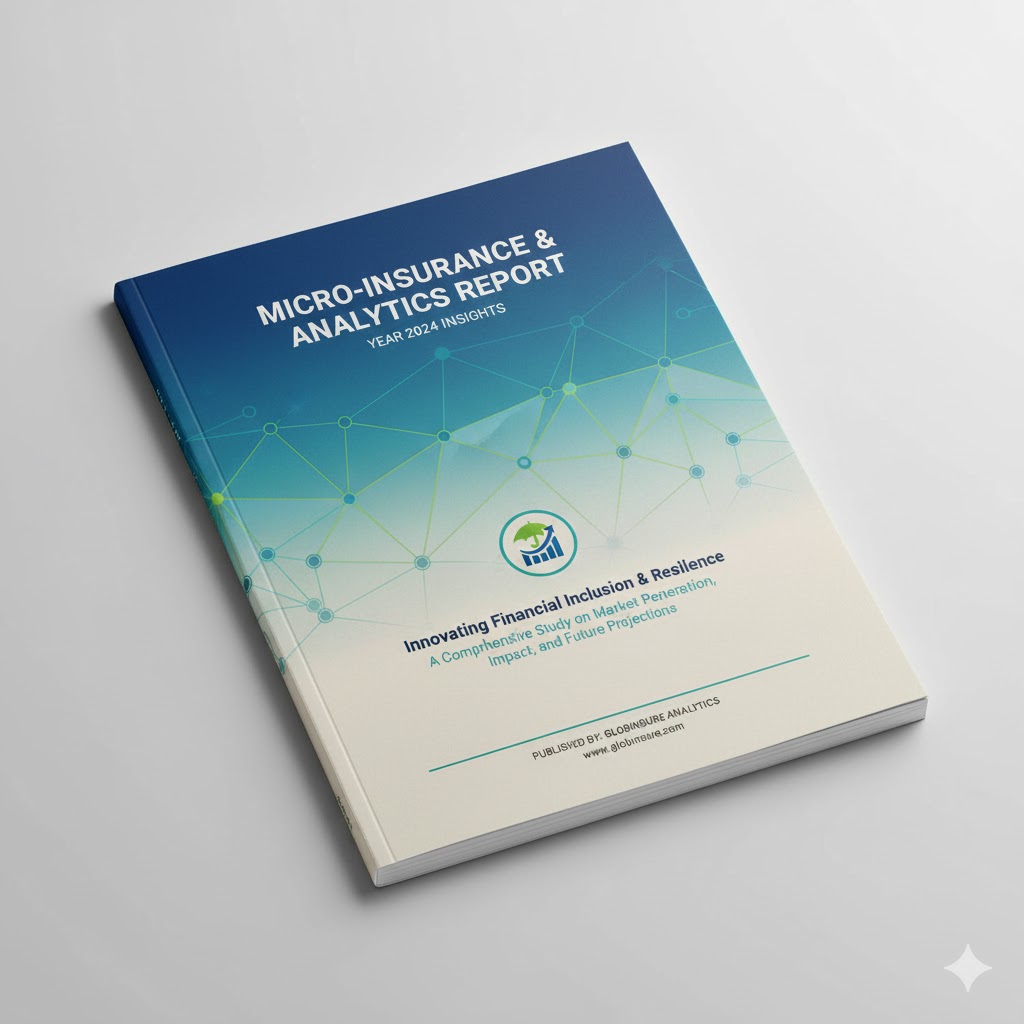Displaying 16 - 30 of 57

DeRisking coffee in Vietnam: Piloting a Coffee Climate Protection Insurance scheme to enhance the capacity of smallholders and agribusinesses in coping with climate variability and change
Vietnam's Central Highlands – the world's largest Robusta coffee region – remains one of the country's poorest areas and is highly vulnerable to climate shocks. To build farmers' resilience, a Coffee Climate Protection Insurance (CCPI) pilot is providing smallholder coffee farmers with index-based insurance against drought, excessive rainfall, and extreme temperature, coupled with climate-informed agro-advisory services.
Fecha de emisión
2022
Temas
Asunto (Producto)
Región

Empowering Women Smallholder Farmers through Digital Microinsurance
Photo essay by ADFI and Pula showing gender-inclusive insurance design using mobile platforms and bundled climate microinsurance products across Kenya, Nigeria, and Zambia.
Fecha de emisión
2022
Temas
Asunto (Producto)
Región

Empowering Women, Building Trust: A Case Study of a Women-Centric Insurance Solution in Nigeria
Describes FCMBeta Health, a women-focused micro health insurance product in Nigeria, bundled with micro-loans, offering hospital cash and maternity coverage. Over 90,000 enrolled by 2025.
Fecha de emisión
2025
Temas
Asunto (Producto)
Región

Enhancing Agricultural Productivity through Yield Estimation Initiatives in Partnership with the Farm-to-Market Alliance
Details ACRE Africa & FtMA project in Kenya to improve crop index insurance using geo-mapped yield data and local training.
Fecha de emisión
2024
Temas
Asunto (Producto)
Región

Exploring the Role of Microinsurance in Financial Inclusion: a Tanzanian Case Study
Explores mobile-based microinsurance and its role in Tanzania's financial inclusion strategy.
Fecha de emisión
2024
Temas
Región

Global Parametrics & One Acre Fund Provide Weather Protection for Tanzanian Farmers
One Acre Fund, a nonprofit that supports smallholder farmers, partnered with Global Parametrics to pioneer a new Water Balance Index protecting 70,000 farmers in Tanzania from drought and excessive rainfall. This index-based weather insurance enables fast, affordable payouts, strengthening farmers' resilience to a volatile climate.
Fecha de emisión
2021
Temas
Asunto (Producto)
Región

GREEN DELTA, BANGLADESH – The case for insuring women for a better tomorrow
The case for insuring women for a better tomorrow. Green Delta Insurance Company (GDIC), a private non-life insurer in Bangladesh, partnered with IFC and others to design targeted insurance solutions for women. This note explores why women represent a key growth segment, how GDIC tailored its approach for Bangladeshi women, and the lessons learned from implementing this gender-inclusive strategy in the local market.
Fecha de emisión
2020
Asunto (Producto)
Región

How Chhaya is Building an End-to-End Digital Microinsurance Platform in Bangladesh
Bangladeshi insurtech Chhaya develops affordable digital health and life insurance distributed via mobile payments (bKash) with a subscription model.
Fecha de emisión
2025
Temas
Asunto (Producto)
Región

IFC Inclusive Business Case Study: MicroEnsure
MicroEnsure bundled insurance with mobile loans and airtime in 15 countries. By 2016, this model had scaled to reach over 40 million clients and included 200+ insurance products. It illustrates a high-impact approach to mobile-enabled microinsurance delivery with large-scale outreach.
Fecha de emisión
2016
Temas
Asunto (Producto)

Innovative Index-Based Agriculture Insurance: Where hope meets possibility
A pilot index-based insurance product for rice farmers to mitigate flood-related risks and promote financial resilience.
Fecha de emisión
2022
Temas
Asunto (Producto)
Región

INSULAR LIFE, PHILIPPINES – The case for insuring women for a better tomorrow
Insular Life, Philippines – This case study showcases how Insular Life (InLife), a leading life insurer and health maintenance organization in the Philippines, partnered with IFC and the Women Entrepreneurs Finance Initiative (We-Fi) to better serve Filipino women. Their gender-focused strategy positions InLife as both an inclusive insurer and an employer of choice for women. The report outlines their journey toward creating more accessible insurance solutions, workforce empowerment, and long-term impact on women's financial resilience.
Fecha de emisión
2021
Asunto (Producto)
Región

Insurance Automation by Lead Foundation in Egypt
Insurance automation initiative led by Lead Foundation in Egypt, exploring how digital systems can enhance access to inclusive life insurance. The case outlines the broader poverty and economic context, key capacity-building interventions, implementation strategy, and an honest reflection on both the successes and challenges faced. It also discusses project outcomes and lessons learned, offering a blueprint for tech-enabled insurance in underserved regions.
Fecha de emisión
2019
Temas
Asunto (Producto)
Región

InsuResilience Solutions Fund – Development of an Insurance Programme for Public Schools in Peru
Public-private partnership to insure 50,000+ Peruvian public schools against natural disasters with parametric payouts. Led by APESEG and ISF with support from IDF, AXA XL, and Munich Re.
Fecha de emisión
2021
Temas
Asunto (Producto)

Lead Family Insurance by Lead Foundation in Egypt
Insurance Automation by Lead Foundation in Egypt. This case outlines the economic and poverty context in which the intervention took place, including the project's approach to capacity building and automation. It highlights both the results achieved and not achieved, and captures key lessons learnt in delivering health and credit life insurance to underserved populations.
Fecha de emisión
2020
Temas
Asunto (Producto)
Región

Making a profitable inclusive insurance business: a case study of Britam, Kenya
In 2007, Britam, a Kenyan financial group, launched its first microinsurance product for low-income customers. Over 11 years, Britam built a profitable microinsurance business unit covering more than 700,000 lives by 2017. This case study distills key lessons from Britam's journey to guide other insurers in serving traditionally excluded markets.
Fecha de emisión
2019
Temas
Asunto (Producto)
Región
